SYEF Programs
Headed into our 13th year, we are building on our core strengths while adapting programs to lessons that were learned through the Covid years.
Secondary School Scholarships
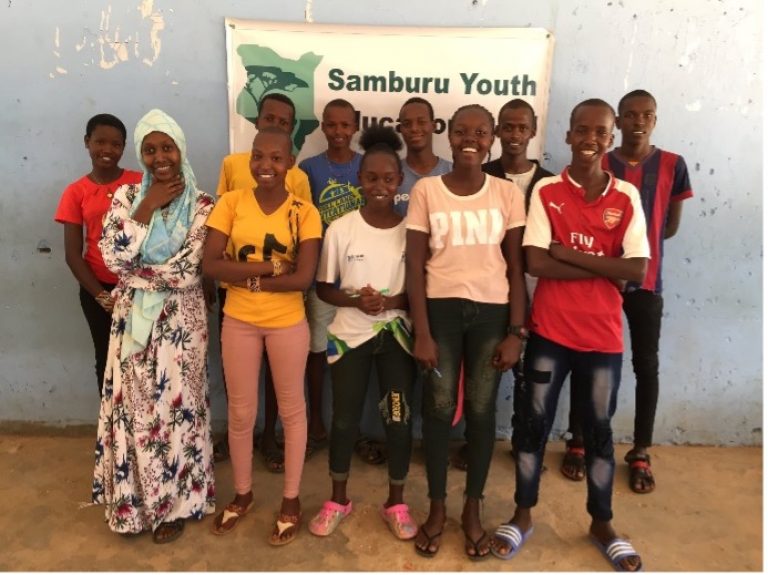
SYEF started as a scholarship program when it was founded in 2010. We selected our first 10 recipients based on recommendations from local school leaders, asked those 10 youth to bring us their school fees paperwork, and paid the bill. It was that simple. We continue that tradition today, though with a more formalized process in which youth are nominated by their schoolteachers and principals, an advisory board reviews the nominations, and makes selections. From there, we pay school fees directly to schools’ bank accounts and send our scholarship recipients with the receipts to show their school personnel. We annually support 40-50 youth every year.
Secondary school in Kenya is not free, and most secondary schools are boarding institutions in which youth from all over Kenya are placed in schools throughout the country, in part as a strategy by the country to encourage interaction among youth from different regions and tribes. A second goal for this approach by the country is to group youth together with similar academic achievement levels. We generally notice that the better the school, the higher the price for tuition and boarding. Our annual per-student scholarship varies between USD $350 and upwards of $900, a prohibitive amount of money for students from a region where household income could easily be less than annual school fees. We pay 100% of school tuition and boarding, and ask families to only contribute to their child’s transportation needs for coming to and from school during the academic breaks and holidays.
Student Life Skills Training
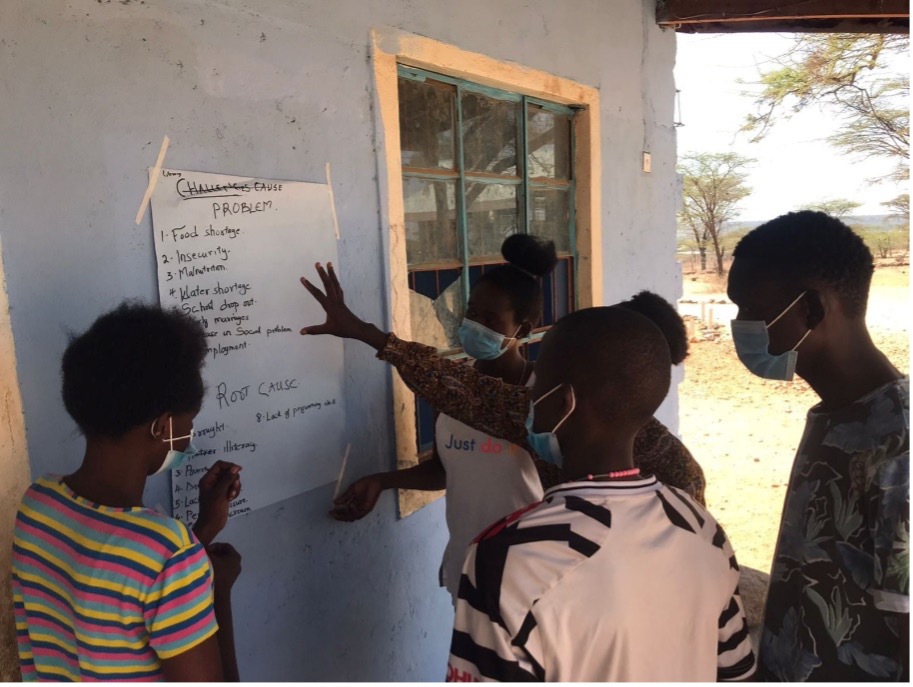
Our scholarship recipients were typically among the highest performing students in their six years of local primary school, often the result of their tenacity, persistence, and even some self-taught content, as schools in Samburu are often under-resourced in terms of materials and instructors. Most of our students continue to secondary school in other parts of the country, are often among peers coming from schools with more resources and stability, and peers who maybe did not have as many demands to assist with household upkeep and childcare of siblings.
In addition, when our students return home during school breaks, their families sometimes cannot relate to the students’ experiences, and our girls face constant tension when it comes to pregnancy; in traditional Samburu culture, child-bearing starts in the teenage years.
To address these challenges, we convene our students in sessions that address study habits, setting goals and defining success, reproductive health and women’s rights, and other topics that help support their success. Many of these sessions are in a peer-to-peer format, in which previous scholarship recipients and our older current recipients provide guidance and feedback to our newer and younger students. In addition, our older students are taught about resume-writing, job-seeking, and higher education access as they finish up secondary school. All these efforts help us create a community of achievers who grow increasingly comfortable with their journey, a journey that diverges from what is typical for young people in the region.
Social Change Leadership / SAWA
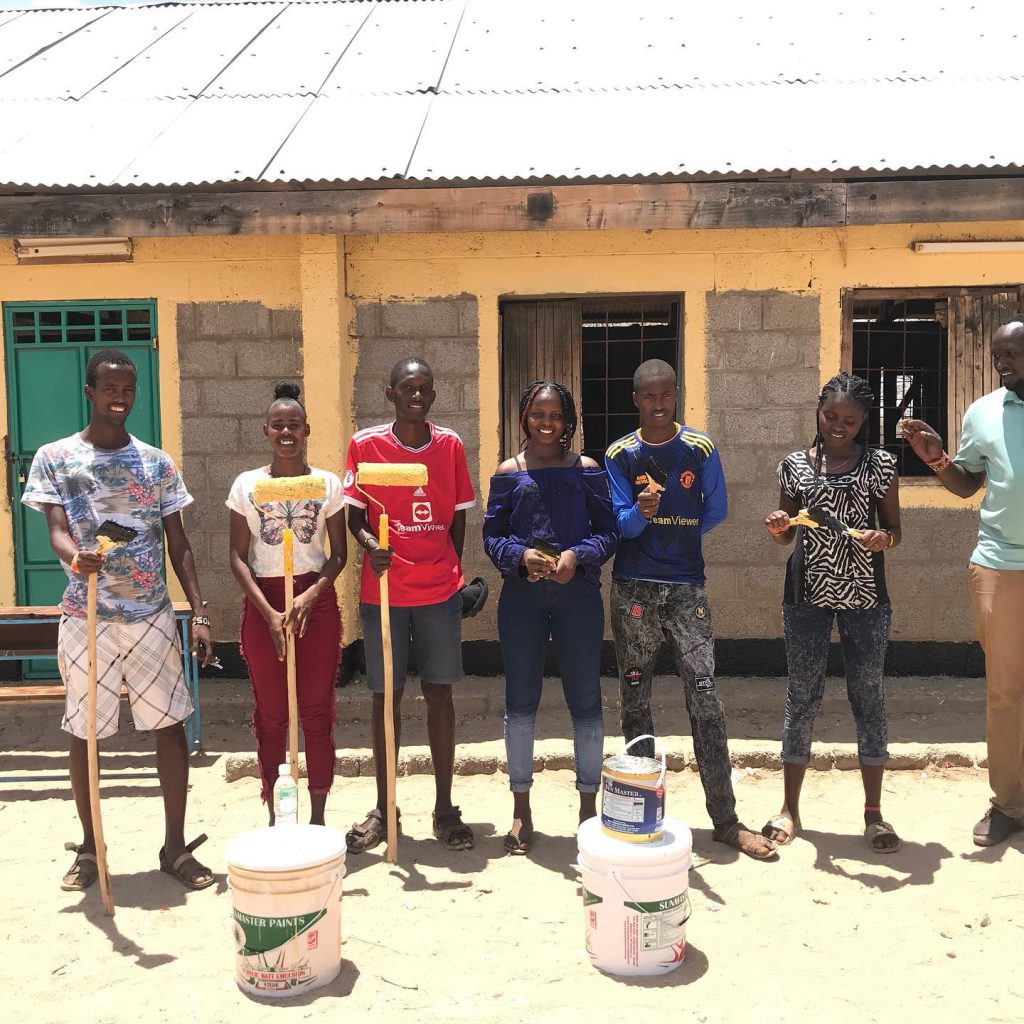
Our Samburu Achievement and Aspirations (SAWA) program is offered to our second and third year secondary students as a strategy to encourage them to conceptualize and understand persistent social challenges in their community in a different light. We emphasize the importance of getting to the root causes of issues, designing and developing new ideas to the same old problems, and taking risks by implementing their new ideas at small scales that can be monitored and evaluated.
Samburu is a region of the world with a long history of development and aid efforts, yet serious challenges around water quality, poverty, gender equity, educational access, and other issues persist. SAWA doesn’t aim to solve these complex issues; rather, we aim to equip our students with an ability to reframe their understanding of these problems and the value of innovation in addressing them, with the goal that they will be in positions to addresses these big problems as they land in leadership positions down the road.
DIG Entrepreneurship
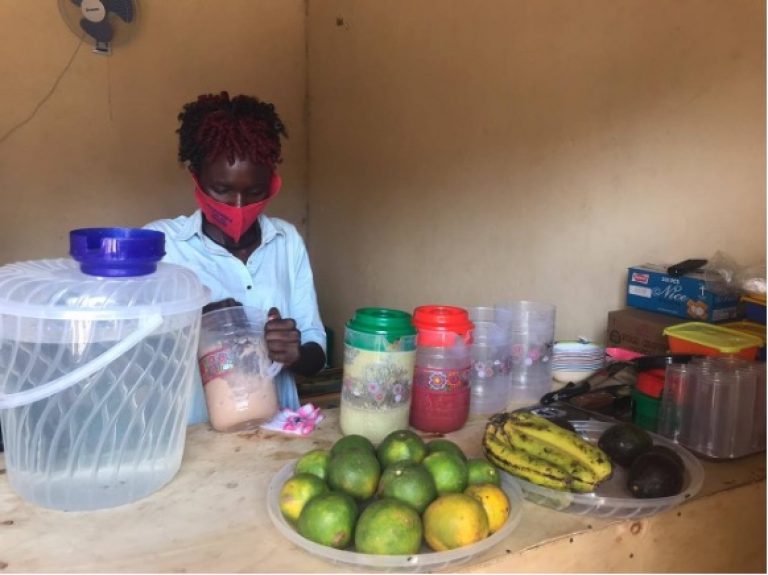
Like our scholarship program, we recognize that there are many highly capable and motivated individuals in Samburu who only need an opportunity where their potential can be unleashed; we open the door, and they do the rest in terms of the hard work and discipline needed to be successful. With our DIG Entrepreneurship program, we select teams of aspiring entrepreneurs and support them through a strategy and planning series of workshops, line them up with a business mentor, provide a start-up capital grant, and then check in with the teams as their businesses hit the ground running. With dramatic improvements in infrastructure in Samburu – paved roads, electricity, WiFi — over the past 10-15 years, there are new markets and opportunities emerging consistently, and our DIG entrepreneurs are leveraging those opportunities. Our participants apply the basics of business planning to their enterprises, and then put forth the hustle, resilience, and pivot-mentality needed to launch and stabilize a profitable venture!
Women’s Beadwork Initiative
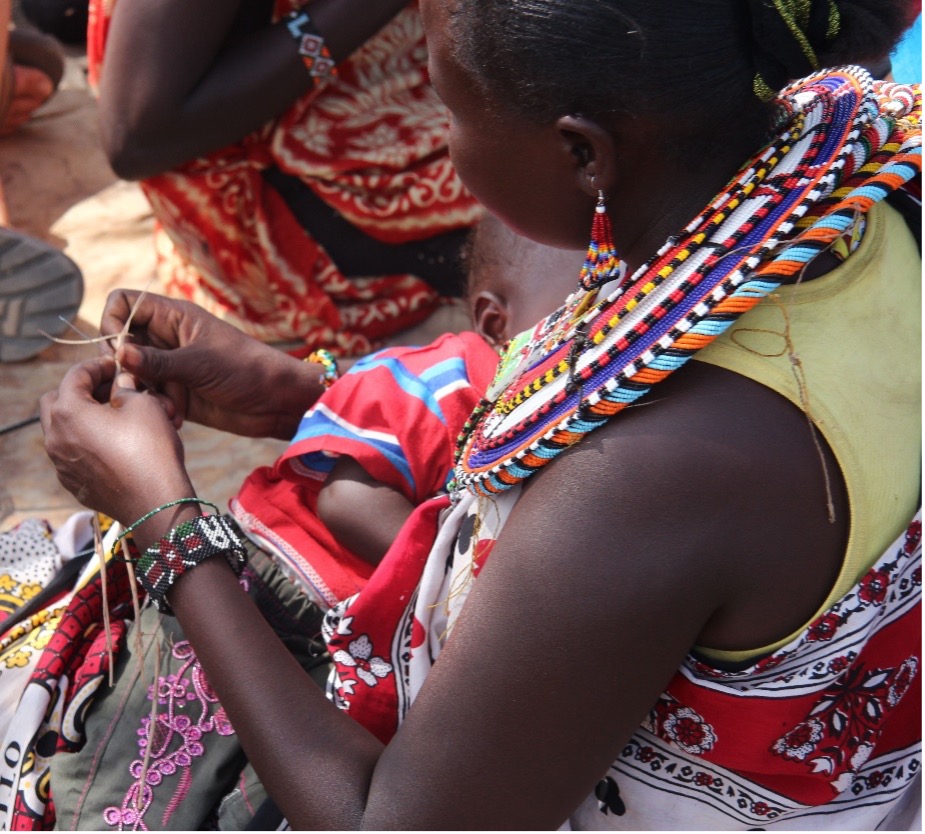
The history of elaborate and ornate art by Samburu women goes back hundreds of years, initially using seeds and similar natural materials to create necklaces, bracelets, earrings, and other items that are worn to signify life ceremonies and transitions. Today, their beadwork has adapted and is comprised of glass and plastic beads, natural materials, metals, and other supplies. A traditional necklace can take weeks to complete with its highly complex and detailed patterns.
We sell Samburu women’s beadwork to support their income-earning potential, which gives her more autonomy to achieve food and housing security for her household. We sell both beaded jewelry, and beaded non-jewelry items such as wildlife figurines, bowls, key chains, and similar items. We purchase the items from women at a price based on their time and materials – we set that price together with the women — which ensures they are compensated fairly at the time their beadwork is given to SYEF for resale. We then sell the items online and at various community markets.
Our beadwork initiative not only gives women an opportunity to earn some income; the process also helps their development as businesswomen, as we work with them to understand the markets for their products (colors, styles), distinctions between wholesale/retail pricing, quality, and other matters relevant to selling products to customers.
